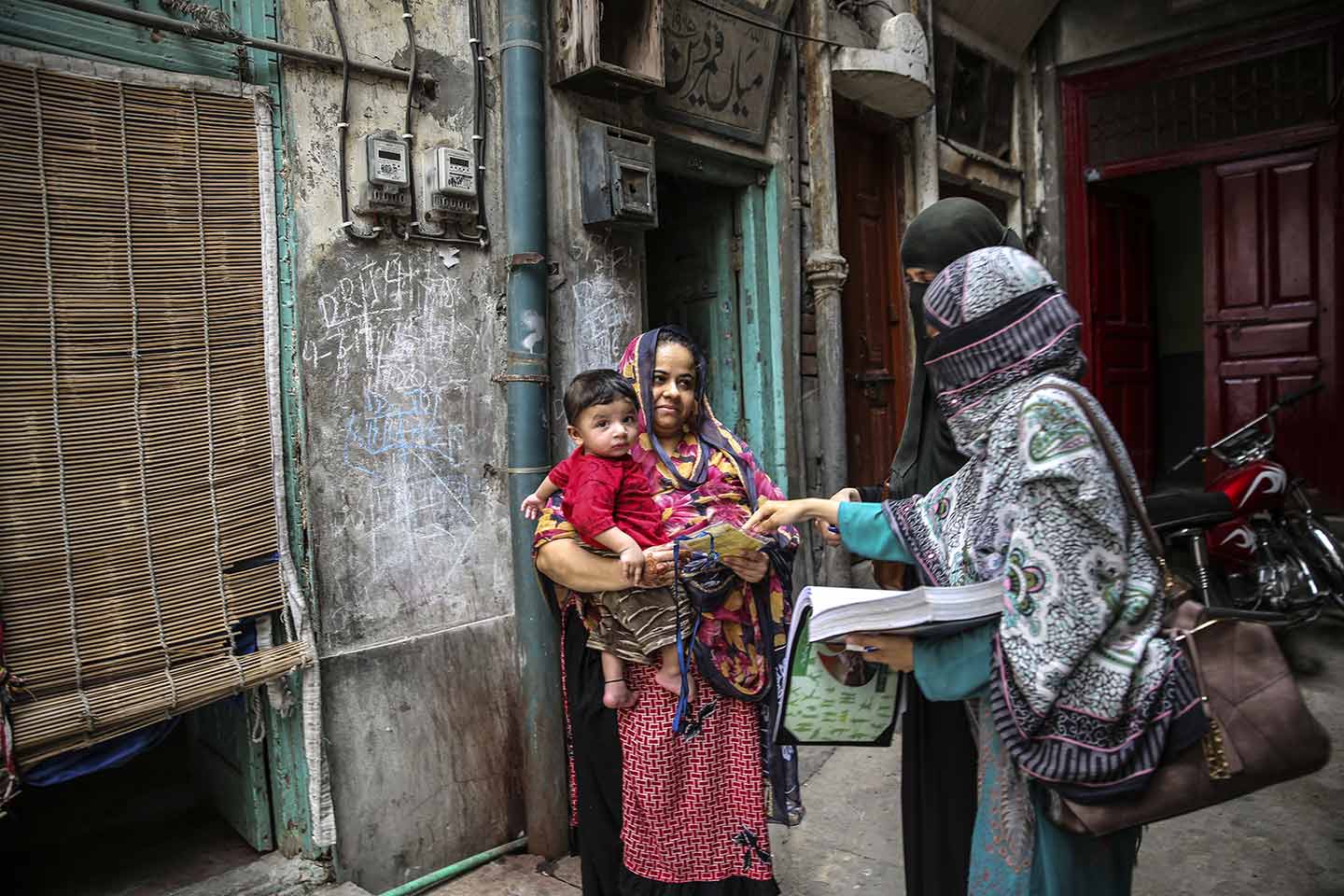How the COVID-19 lockdown is affecting routine immunisation
Routine immunisation has slowed in many Gavi-supported countries around the world. Here, researchers writing in The Lancet, including a Gavi scientist, look at the effect of lockdown on vaccination programmes in Karachi, Pakistan
- 3 July 2020
- 3 min read

In a bid to slow the COVID-19 pandemic, many countries went into lockdown that disrupted the provision of many health services, including routine immunisation. The province of Karachi in Pakistan is a megacity with 16 million people, 7 million of whom live in informal settlements. These urban poor live in overcrowded conditions with low rates of immunisation even before COVID-19. Between 23 March and 9 May 2020, the province went into lockdown to stop the spread of the new coronavirus.
To analyse the impact of this shutdown, researchers writing in The Lancet looked at data from a registry that vaccinators use to enrol people and track their vaccination status and geographical location. From October, 2017, to May, 2020, more than 2.9 million children (aged 0–23 months) and more than 1 million women (aged 15–49 years) were enrolled, and 22 million immunisation events were recorded.
Reductions in daily vaccination visits
During lockdown the average number of daily immunisation visits fell by just over half (52.8%, 5184 to 2450 visits) compared with the 6 months just before lockdown started. Once lockdown was lifted, immunisation rates recovered somewhat - from 10 May to 6 June 2020, the average number of daily immunisation visits was reduced by 27.2% compared with before lockdown (from 5184 to 3772 visits).
Outreach services were affected most with a 88.6% drop in immunisation doses given compared with a 38.7% drop for fixed centres. The researchers suggest that restrictions on movement and fears about COVID-19 transmission might have prevented caregivers from accessing services, and to fewer vaccinators working during lockdown.
Lockdown has exacerbated existing inequities
Geospatial analysis showed that the worst-affected areas were slums and squatter settlements, which have formed hotspots for vaccine-preventable diseases such as measles and polio.
This is of particular concern to polio eradication efforts, and Pakistan is one of only two countries (the other is Afghanistan) where polio is endemic. Polio has risen in the country in the past few years, with only 12 cases in 2018 rising to 147 in 2019.
The pause in vaccination programmes were planned, however, as The Global Polio Eradication Initiative (GPEI) itself recommended on 24 March that all vaccination programmes be paused until the second half of the year.
The slowdown in immunisation reflects the challenging balance that health officials have faced in responding to COVID-19 while not allowing other outbreaks to take hold.





